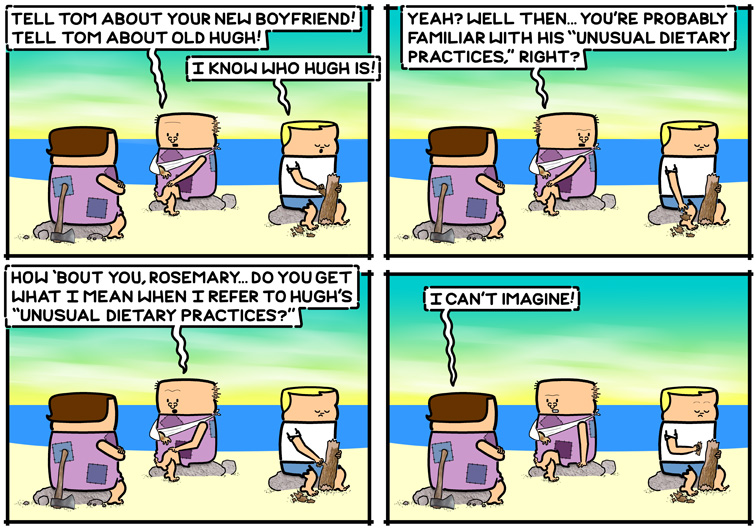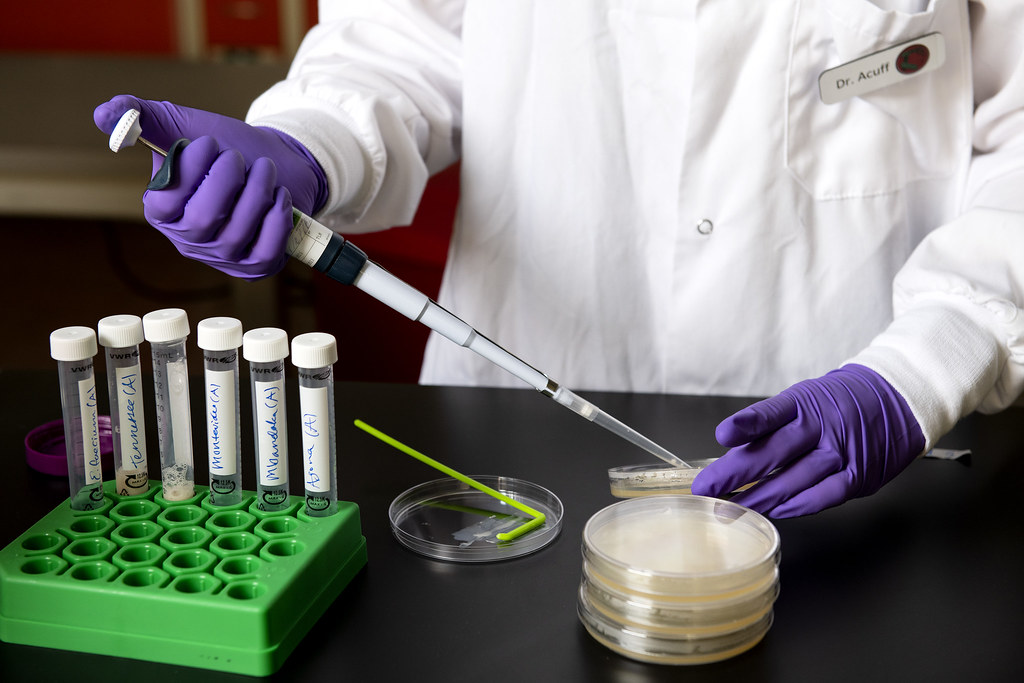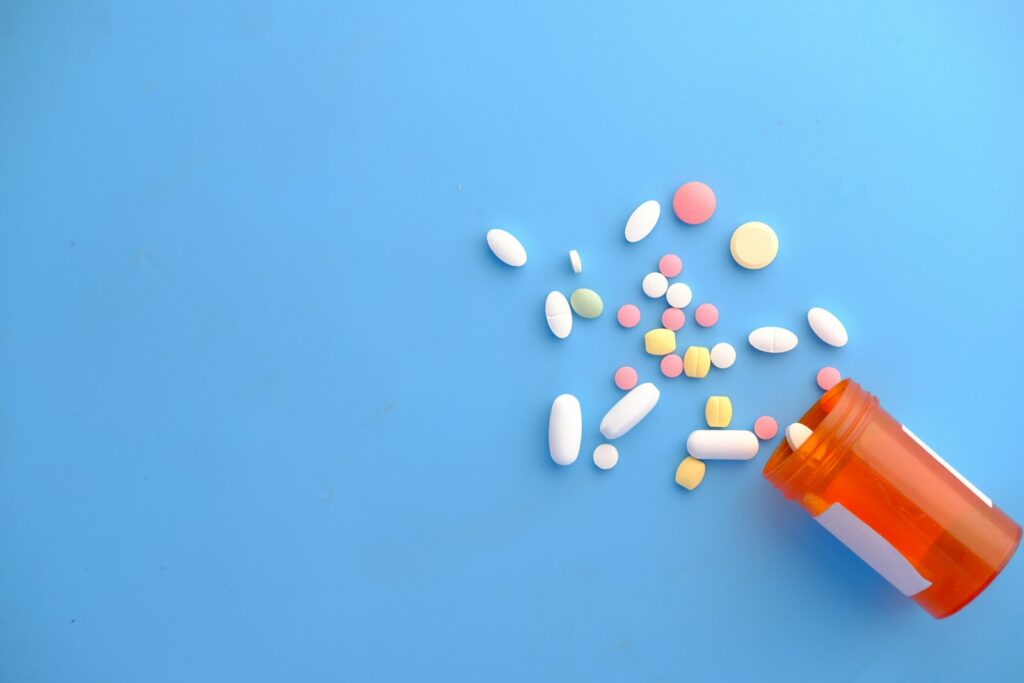
In our continuous pursuit of wellness, many of us turn to dietary supplements, believing them to be natural allies in maintaining good health. Whether it’s for boosting immunity, enhancing mood, or simply ensuring we get all our essential nutrients, supplements have become a commonplace addition to daily routines. However, beneath this veneer of natural goodness lies a complex reality: these seemingly innocuous pills, powders, and herbs can harbor significant risks when mixed with certain medications, turning a quest for health into a precarious gamble.
The U.S. Food and Drug Administration (FDA) clearly states that it does not approve supplements for safety or effectiveness, underscoring the critical need for caution. This means that, unlike prescription drugs, supplements don’t undergo the same rigorous testing for interactions or efficacy before hitting the market. For individuals managing chronic conditions, or even just taking over-the-counter remedies for daily aches, understanding these potential clashes is not just advised—it’s absolutely essential for preventing serious, and sometimes life-threatening, health complications.
Navigating the intricate landscape of drug and supplement interactions can feel daunting, but being informed is your most powerful tool. This in-depth guide aims to shed light on some of the most common and dangerous combinations you need to be aware of. We’ll explore how certain supplements, despite their popular appeal, can undermine the effectiveness of your medications or trigger adverse reactions. Remember, your healthcare professional is your most vital resource; always engage in open dialogue about any supplements you are considering, ensuring your path to wellness is both effective and safe.
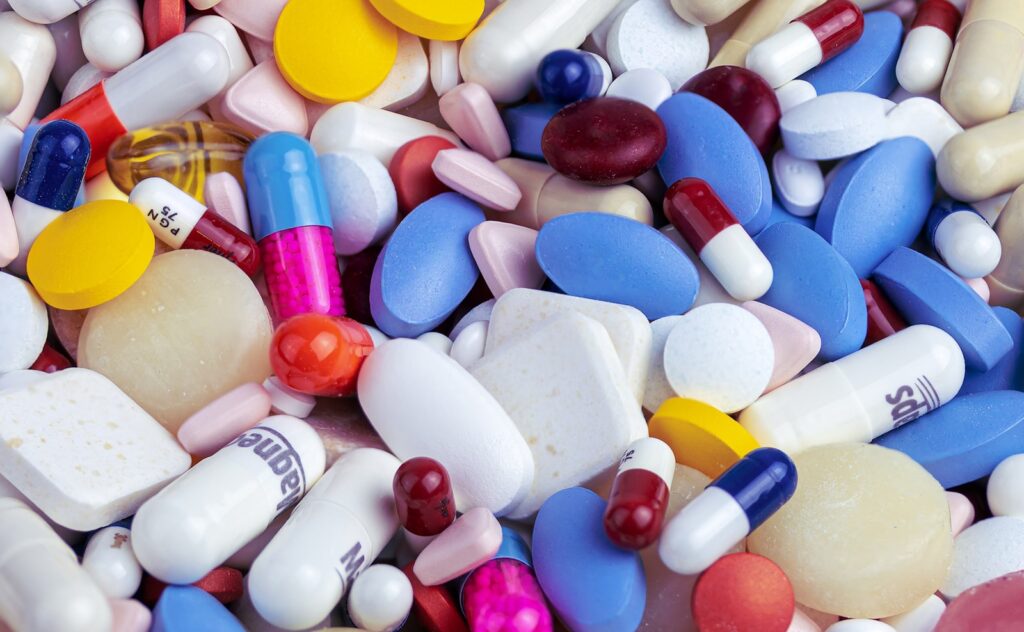
1. **Saint-John’s-Wort and Antidepressant Drugs**Practitioners of folk medicine have historically revered Saint-John’s-wort, a wild plant, as a natural treatment for various mental health conditions. Its reputation as a mood-enhancer has led to its widespread use in supplement form, often by individuals seeking natural alternatives for emotional well-being. This widespread acceptance, however, often masks a serious cautionary tale about its potent pharmacological effects.
The critical concern arises when Saint-John’s-wort is combined with certain prescription antidepressants. The National Center for Complementary and Integrative Health (NCCIH) warns that this combination can lead to a dramatic and potentially life-threatening increase in serotonin levels. Serotonin is a crucial chemical produced by nerve cells, and an excessive accumulation can precipitate a condition known as serotonin syndrome.
Symptoms of serotonin syndrome can manifest rapidly, sometimes within minutes of co-administration. These alarming signs include a rapid heartbeat, pronounced agitation, dangerously high blood pressure, and even hallucinations. Such severe reactions underscore the profound impact this herbal supplement can have on the body’s delicate chemical balance when mixed with conventional psychiatric medications.
Beyond antidepressants, Saint-John’s-wort demonstrates a broad spectrum of interactions, significantly reducing the efficacy of many other vital prescription drugs. These include contraceptive pills, digoxin (used for heart conditions), oxycodone (an opioid pain medication), and cyclosporine (an immunosuppressant critical for organ transplant recipients). It also interferes with certain cancer medications like irinotecan and some HIV medications, such as indinavir, alongside the commonly used blood thinner, warfarin.
Given its wide-ranging disruptive potential, medical professionals issue a strong warning for individuals undergoing surgical procedures. As Jodie Pepin, PharmD, emphasizes, “Saint-John’s-wort may also interfere with several drugs that are used prior to and during surgery, so make sure you tell your surgeon or anesthesiologist that you are taking this supplement.” She further advises that patients “will likely instruct you to stop taking it five to seven days prior to your operation” to prevent complications related to anesthesia or other perioperative medications.

2. **Goldenseal and Metformin**The plant goldenseal, often sold in supplement form, is frequently marketed as a panacea for various ailments. Consumers might encounter it touted as a remedy for the common cold, respiratory tract infections, allergies, and upset stomach, believing in its broad therapeutic properties. However, it’s crucial to note that current scientific evidence, as highlighted in the context, does not support these claimed health benefits, making its widespread use primarily reliant on anecdotal or traditional beliefs.
Despite the lack of substantiated benefits, goldenseal carries a significant risk of drug interactions, particularly with the widely prescribed diabetes medication, metformin. Dr. Pepin points out this major concern, which has been substantiated by scientific investigation. This interaction is not merely theoretical; it has direct, measurable consequences for patients relying on metformin to manage their blood sugar levels effectively.
A study published in 2025 specifically found that goldenseal can reduce the efficacy of metformin by approximately 25 percent. This substantial reduction in drug effectiveness means that individuals taking metformin for diabetes who also use goldenseal supplements may not be receiving the full therapeutic benefit of their diabetes medication, potentially leading to poorly controlled blood glucose levels and associated health risks. Such an interaction can undermine an entire treatment regimen without the patient even realizing it.
Furthermore, the interaction with metformin is just one example of goldenseal’s broader disruptive potential. The supplement is known to interact with many different medications by changing how your liver processes them. This highlights a pharmacokinetic interaction where goldenseal interferes with the body’s metabolism of other drugs, leading to unpredictable concentrations of these medications in the bloodstream—either too high or too low, both of which can be dangerous.
Consequently, goldenseal is an herbal supplement that is strongly recommended to be avoided in combination with most over-the-counter and prescription medications. Its capacity to alter liver processing enzymes (like those in the cytochrome P450 family) makes it a high-risk contender for clinically important drug interactions, demanding extreme caution and, ideally, complete avoidance if taking any other pharmaceutical agents.

3. **Vitamin D and Blood Pressure Medications**Vitamin D is a crucial nutrient, indispensable for bone health, immune function, and various other bodily processes. In modern society, it’s quite common for individuals to need supplementation to achieve optimal levels, especially due to limited sun exposure or dietary intake. As Lara Zakaria, PharmD, a registered pharmacist and certified nutrition specialist, notes, “Generally speaking, most people need to supplement their vitamin D, and their blood levels should be monitored closely to optimal target levels.” This underscores its general importance in wellness routines.
However, while vitamin D supplementation is often necessary, it is not without potential pitfalls, particularly concerning medication interactions. Dr. Zakaria acknowledges that it’s “uncommon that we tell patients not to use vitamin D because of medications,” yet she quickly adds, “But that said, there are some considerations.” These considerations are especially pertinent when dealing with medications for chronic conditions like high blood pressure, where precise drug action is critical.
The most significant interactions involving vitamin D supplements occur with specific types of blood pressure medications. These include calcium channel blockers such as verapamil and diltiazem, as well as thiazide diuretics. The mechanisms of these interactions can vary, but the consequences can compromise the effectiveness of the blood pressure regimen or introduce new health risks. It is essential for patients to understand that their efforts to supplement vitamin D might inadvertently affect their cardiovascular health.
One of the primary risks of combining vitamin D with these blood pressure drugs is a potential reduction in the effectiveness of the medication itself. Additionally, and perhaps more alarmingly, this combination may increase the risk of hypercalcemia. This is a condition where calcium levels in the blood become higher than normal, leading to a cascade of unwelcome health issues. Hypercalcemia can manifest with severe consequences, including the formation of kidney stones, a weakening of the bones over time, and a host of unpleasant digestive symptoms such as constipation, nausea, and vomiting.
Given these risks, it is paramount that anyone taking blood pressure medications, particularly verapamil, diltiazem, or thiazide diuretics, consult their healthcare provider before initiating or continuing vitamin D supplementation. Close monitoring of blood levels, both for vitamin D and calcium, becomes a critical component of safe and effective management, ensuring that the pursuit of one health benefit does not inadvertently undermine another vital aspect of well-being.
Read more about: The 10 Worst Keto Mistakes That Chefs Wish You Would Stop Making: A Guide to Success
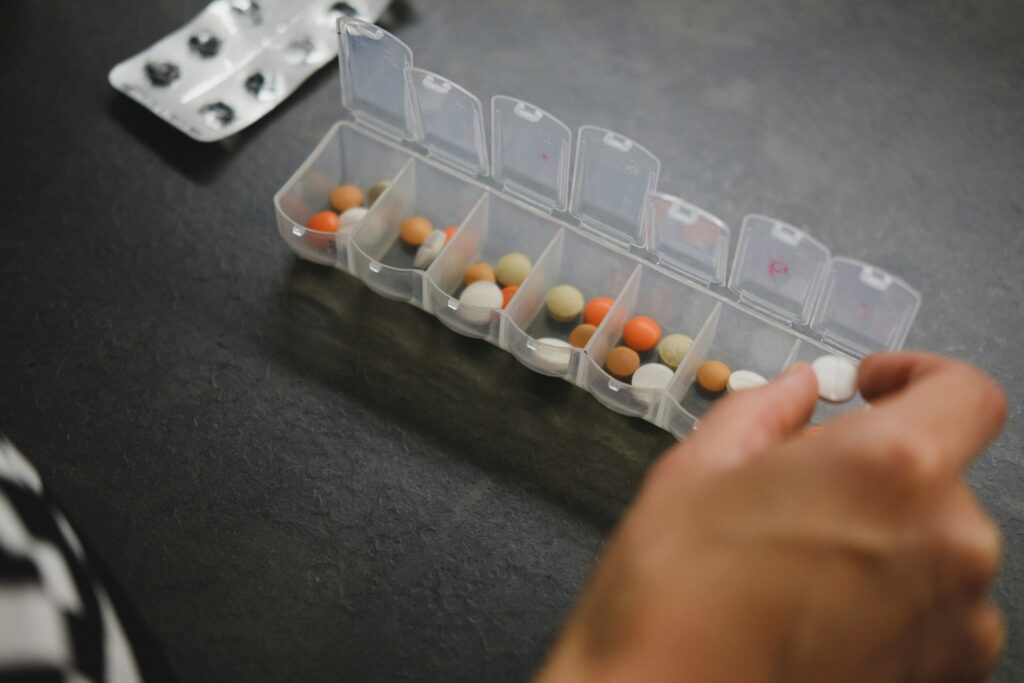
4. **Omega-3 and Blood Thinners**Omega-3 fatty acids, found abundantly in foods like salmon and flaxseed, are widely lauded for their numerous health benefits. Research consistently links dietary intake of these essential fatty acids with improved heart health, making them a cornerstone of a balanced diet for many. Their well-established role in reducing inflammation and supporting cardiovascular function has led to their popularity as a dietary addition, whether through food or concentrated supplements.
The enthusiasm for omega-3 extends to supplements, commonly known as fish oil pills, which are frequently taken in hopes of replicating the benefits derived from food sources. However, research on the heart-healthy benefits of omega-3 supplements has yielded mixed results; while some studies suggest they boost cardiovascular health, others have found no significant impact. This discrepancy highlights the complexity of supplement efficacy compared to whole food intake.
Despite the varying research on their primary health benefits, a clearer picture emerges regarding omega-3 supplements and their potential drug interactions. The most significant concern involves medications that affect blood clotting. Omega-3s can interact with blood thinners, also known as anticoagulants, and even nonsteroidal anti-inflammatory drugs (NSAIDs). These interactions are particularly dangerous because they can potentiate the anticoagulant effects, increasing the risk of bleeding.
The practical consequence of this interaction is that it can make it take longer for cuts to stop bleeding, even minor ones. In situations of injury or internal bleeding, this delay can have serious, even life-threatening, implications. The additive effect on blood thinning can push the body’s natural clotting mechanisms beyond a safe threshold, making routine activities or minor traumas more hazardous.
For anyone considering surgery, regardless of its minor or major nature, it is absolutely imperative to discuss omega-3 supplement use with their healthcare provider. Dr. Zakaria explicitly advises individuals prepping for surgery to talk to their provider about discontinuing their supplement use prior to the procedure. This precaution is essential to minimize the risk of excessive bleeding during and after the operation, ensuring patient safety in a critical medical context.
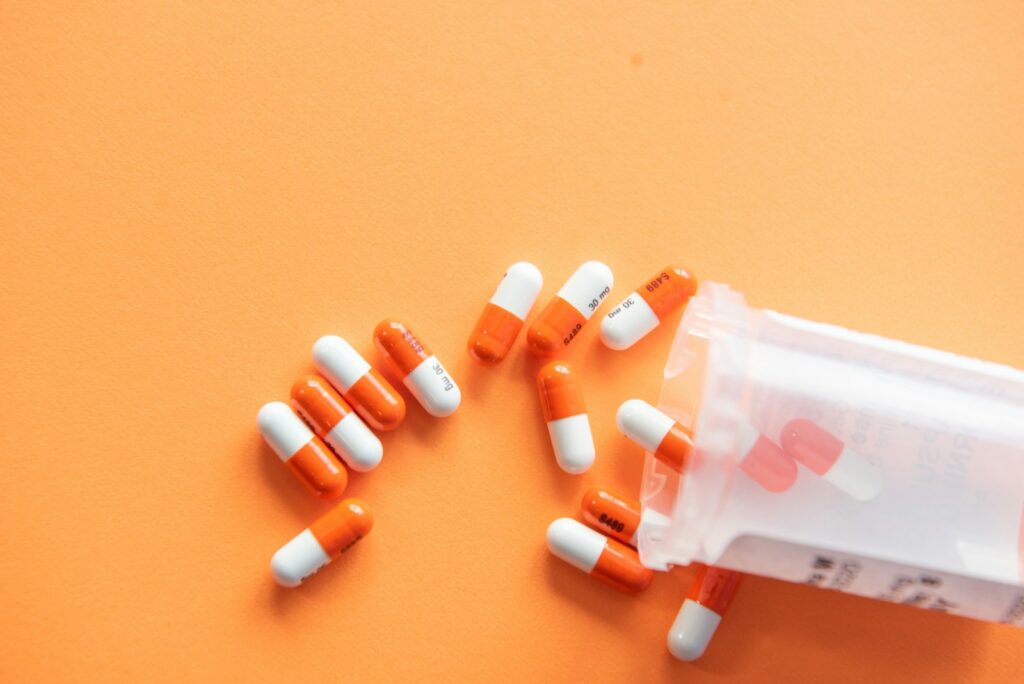
5. **Vitamin C and Kidney Medications**Vitamin C, or ascorbic acid, is an indispensable nutrient vital for countless bodily functions. It plays a critical role in the synthesis of collagen, which is essential for building blood vessels, cartilage, and muscles, and it is also a powerful antioxidant that supports immune health. Most individuals can obtain adequate amounts of vitamin C through a balanced diet rich in fruits and vegetables, yet some may require supplementation if they are prone to deficiency or have specific dietary restrictions.
While vitamin C supplementation is generally considered safe for the majority of the population, certain potential interactions warrant careful attention, particularly for individuals with pre-existing health conditions or those on specific medications. Ignoring these interactions could undermine the effectiveness of crucial treatments or lead to undesirable side effects, transforming a beneficial supplement into a source of concern.
One significant interaction involves the absorption of aluminum. Vitamin C supplements may increase the absorption of aluminum from medications such as phosphate binders. These binders are commonly prescribed to individuals with kidney disease to help remove excess phosphate from their blood, a critical aspect of managing their condition. For these patients, increased aluminum absorption can be detrimental, potentially leading to aluminum toxicity, which can have serious neurological and bone-related complications. Therefore, individuals undergoing treatment for kidney disease and taking phosphate binders should unequivocally avoid vitamin C supplements.
Beyond aluminum absorption, vitamin C supplements have been identified as potentially interacting with a broader spectrum of medications. These include certain chemotherapy drugs, where interactions could either reduce the effectiveness of the cancer treatment or exacerbate side effects. Additionally, interactions have been noted with statins (cholesterol-lowering drugs), niacin, protease inhibitors (used in HIV treatment), warfarin (a blood thinner), and various estrogen medications. The complexity of these interactions underscores the importance of a comprehensive medication review with a healthcare provider.
Given its widespread use and the specific risks highlighted, particularly for those with kidney disease or complex medication regimens, a thorough discussion with a pharmacist or physician before starting vitamin C supplementation is non-negotiable. This proactive approach ensures that the pursuit of vitamin C’s benefits does not inadvertently interfere with other essential medical treatments, maintaining overall health and safety.
Read more about: Unsafe Bites: 7 Dog Treats You Should Reconsider for Optimal Canine Health and Safety
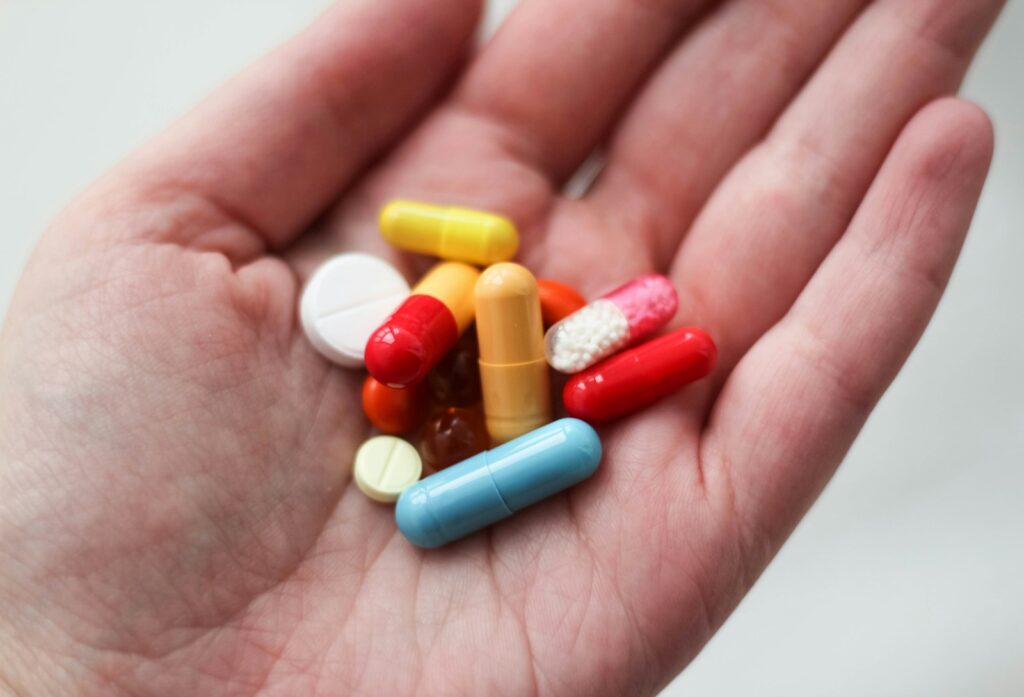
6. **Turmeric and Over-the-Counter Pain Medicine**Turmeric, a vibrant yellow spice widely celebrated in culinary traditions and increasingly recognized for its health properties, contains an active compound called curcumin. Research suggests that curcumin may offer numerous benefits, including reducing inflammation and easing symptoms associated with conditions such as anxiety, arthritis, degenerative eye disease, metabolic syndrome, and muscle soreness. Its anti-inflammatory prowess, in particular, has led many to embrace turmeric supplements as a natural approach to pain management and overall wellness.
However, the very properties that make turmeric beneficial can also lead to problematic interactions when combined with certain medications. A significant caution is advised for individuals who regularly use over-the-counter (OTC) pain medications. These common pain relievers include aspirin, ibuprofen, and acetaminophen, staples in many household medicine cabinets for managing everyday aches, pains, and fevers.
The concerning interaction lies in the fact that turmeric, or its concentrated curcumin extract, can make these widely used OTC pain drugs less effective. This means that individuals taking turmeric supplements might find their aspirin, ibuprofen, or acetaminophen isn’t providing the expected relief, potentially leading to increased discomfort or, worse, an inclination to take higher, potentially unsafe, doses of the pain medication in an attempt to achieve therapeutic effects. Such an interaction can inadvertently lead to both inadequate pain management and an elevated risk of medication side effects.
Beyond its impact on OTC pain relievers, turmeric also demonstrates the potential to reduce the effect of other important medications. This includes certain types of chemotherapy drugs, where any interference could have serious implications for cancer treatment outcomes. It may also diminish the efficacy of indomethacin, a prescription drug specifically used to treat symptoms of arthritis, thereby hindering relief for those suffering from inflammatory joint conditions.
Furthermore, adding turmeric to a regimen that includes anticoagulants, or blood thinners, significantly increases the risk of bleeding. Just like omega-3 supplements, turmeric’s own blood-thinning properties can combine with those of anticoagulants, making it more difficult for blood to clot and escalating the danger of hemorrhage. Therefore, before incorporating turmeric or curcumin supplements into your health routine, especially if you are on any medication for pain, inflammation, or blood clotting, consulting a healthcare provider is an essential step to ensure your safety and the effectiveness of your existing treatments.
Read more about: The Everyday Spices and Herbs That Can Naturally Lower Your Blood Pressure
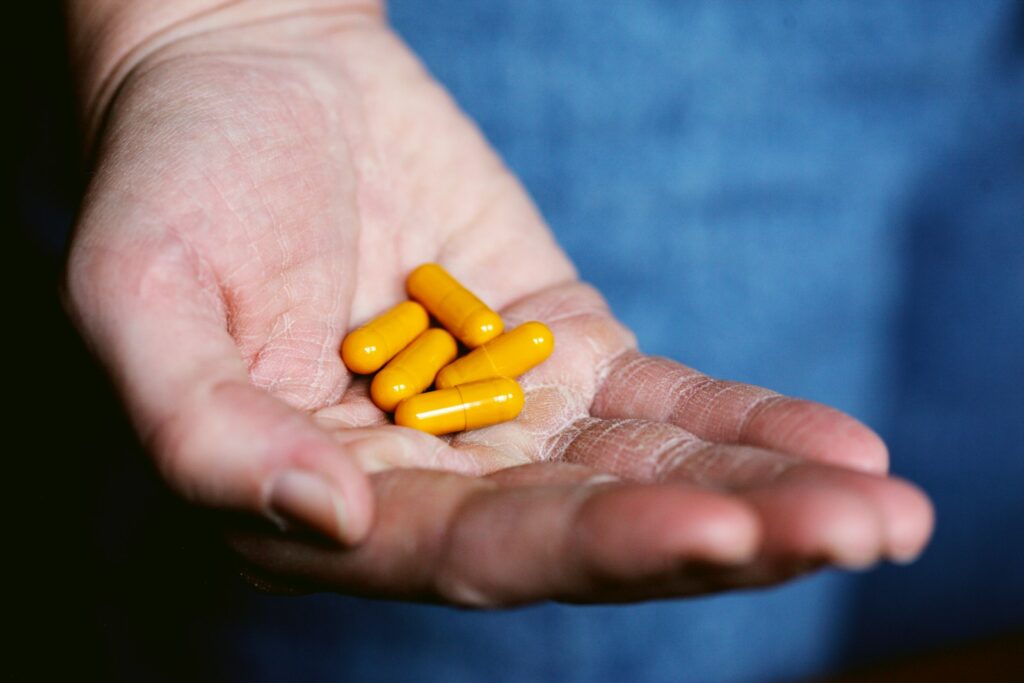
7. **Kava and Anti-Anxiety Medications**Kava, a plant revered by Pacific Islanders for thousands of years, has traditionally served as a medicine, ceremonial beverage, and a means for relaxation. In contemporary wellness circles, kava supplements are often promoted with the promise of reducing anxiety and promoting restful sleep. While some research does suggest these potential benefits, the supplement has also been associated with severe instances of liver injury, though the exact causes and frequency of such occurrences remain subjects of ongoing investigation and uncertainty.
The primary concern with kava lies in its ability to enhance the effects of medications that depress the central nervous system (CNS). As Lara Zakaria, PharmD, a registered pharmacist, explains, this includes substances like alcohol and opioid pain medications, which are already known for their CNS depressant effects. Combining kava with these substances can significantly intensify their sedative properties, leading to excessive drowsiness, impaired coordination, and potentially dangerous respiratory depression.
A particularly critical interaction arises when kava is taken alongside anti-anxiety medications, such as benzodiazepines. These prescription drugs are specifically designed to calm the central nervous system, and kava’s additive effects can lead to an amplified sedative response. This combination could result in profound sedation, cognitive impairment, and a heightened risk of accidents, making everyday tasks perilous.
Beyond these direct interactions, the lack of safety data for vulnerable populations is crucial. No evidence suggests kava is safe for children, prompting strong warnings for parents. Pregnant or breastfeeding individuals are explicitly advised against its use. Anyone considering this supplement should do so only under healthcare provider guidance, due to potential for serious adverse effects and interactions.
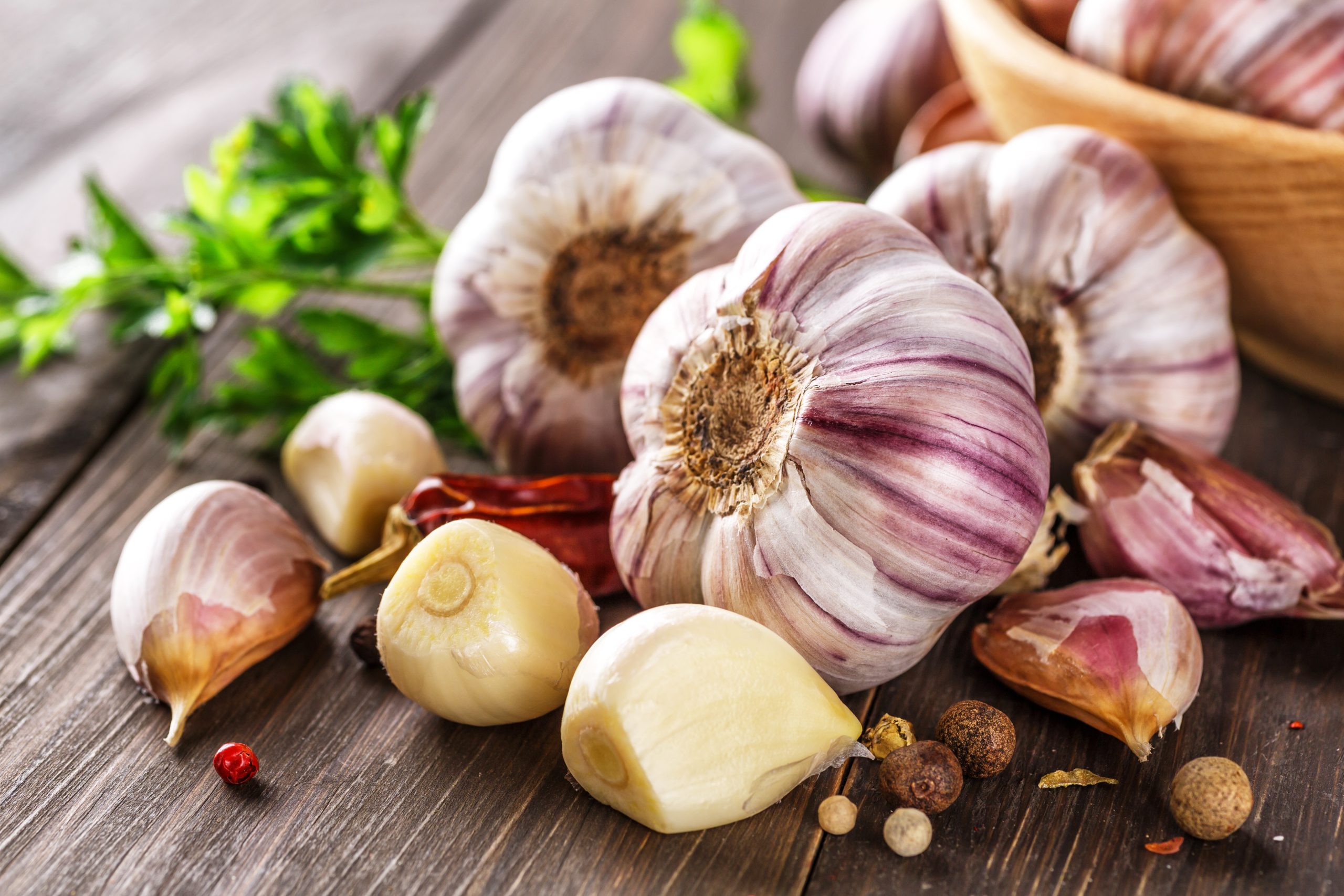
8. **Garlic Extracts and Blood Thinners/Surgery**Garlic, a common culinary ingredient, is also widely used in concentrated supplement forms for its perceived health benefits, often touted for cardiovascular support and immune enhancement. While garlic extracts may offer some advantages for overall well-being, their inherent properties carry significant implications for individuals on specific medications, particularly those affecting blood clotting. The active compounds in garlic have natural anticoagulant, or blood-thinning, effects.
This natural blood-thinning action becomes a major concern when garlic extracts are combined with prescription blood thinners, such as warfarin, or other anticoagulant medications. The additive effect of both substances can significantly increase the risk of bleeding. This heightened risk can manifest in various ways, from prolonged bleeding from minor cuts to more severe internal hemorrhages, posing a serious threat to patient safety. The subtle nature of this interaction makes it particularly insidious, as individuals may not immediately recognize the increased bleeding potential.
Furthermore, the interaction with blood thinners extends beyond prescription drugs to situations involving surgical procedures. The context explicitly warns that garlic extracts can lead to excess bleeding when taken before or after surgery. This is because anesthesia and other perioperative medications can also impact blood clotting, and the combination with garlic can complicate the body’s ability to form clots, potentially leading to excessive blood loss during or after an operation.
Given these serious risks, it is imperative for anyone undergoing surgery, even minor procedures, to inform their healthcare provider about garlic extract supplements. Professionals will likely advise discontinuing them before surgery to mitigate bleeding risk. Similarly, individuals taking warfarin or other blood thinners must discuss garlic supplementation with their doctor, ensuring their medication regimen remains safe and effective through appropriate monitoring.

9. **Concentrated Green Tea Supplements and Pseudoephedrine**Green tea, celebrated for its antioxidant properties and numerous health benefits, is a popular beverage globally. Its concentrated forms, available as dietary supplements, are often sought after for weight management, increased energy, and enhanced metabolic function. These supplements contain a higher concentration of active compounds, including catechins like EGCG and caffeine, than a typical cup of green tea, intensifying both their potential benefits and their capacity for drug interactions.
A specific and notable interaction arises when concentrated green tea supplements are taken concurrently with pseudoephedrine. Pseudoephedrine is a common nasal decongestant found in many over-the-counter (OTC) cold and flu medications. It works by constricting blood vessels, which helps to reduce swelling in the nasal passages and alleviate congestion. However, both green tea (due to its caffeine content) and pseudoephedrine can independently exert stimulant effects on the cardiovascular system.
The combination of concentrated green tea supplements and pseudoephedrine can lead to an exacerbated stimulant effect, potentially increasing heart rate and blood pressure. This synergistic action might be particularly concerning for individuals with pre-existing cardiovascular conditions or those sensitive to stimulants. While a casual cup of green tea might pose minimal risk, the higher concentrations in supplements elevate the potential for clinically significant adverse effects when combined with decongestants.
Therefore, individuals on OTC cold and flu medications with pseudoephedrine should be aware of this interaction and exercise caution with concentrated green tea supplements. Consulting a healthcare provider or pharmacist before combining these products is prudent, especially with heart issues or other medications. Understanding stimulant cumulative effects is vital for preventing cardiovascular strain and ensuring patient safety.
10. **Black Cohosh and Statins**Black cohosh (Actaea racemosa), an herbal supplement, is primarily known for its traditional use in managing menopausal symptoms like hot flashes and night sweats. It has been the subject of numerous studies to evaluate its efficacy and safety in this context. While generally considered to have a low likelihood of interaction with most medications, specific concerns have emerged regarding its potential influence on certain drug classes, particularly statins.
Evidence suggests that black cohosh may reduce the effectiveness of statin medications. Statins are a widely prescribed class of drugs used to lower cholesterol levels and reduce the risk of cardiovascular disease. If black cohosh diminishes the action of statins, patients relying on these medications might not achieve their target cholesterol levels, thereby increasing their risk for heart-related complications. This interaction is not widely recognized, making it a critical point of awareness for both patients and healthcare providers.
Furthermore, there has been a single case report documenting elevated liver enzymes in a patient taking black cohosh concurrently with atorvastatin, a specific type of statin marketed as Lipitor. While a single case report does not establish a definitive causal link, it raises a cautionary flag about potential liver-related issues when these substances are co-administered. The liver plays a crucial role in metabolizing both statins and many herbal compounds, suggesting a potential for hepatic strain or altered drug processing.
Beyond statins, research points to potential OATP2B1 transporter interactions. Interference could reduce the effectiveness of drugs like amiodarone, fexofenadine, glyburide, and other statins. Therefore, anyone considering black cohosh, particularly if on statins or other OATP2B1-transported drugs, must consult their physician for personalized advice and monitoring.
Remember, the FDA reiterates that supplements lack the rigorous safety and effectiveness approval of prescription drugs. This places greater responsibility on you, the consumer, to be vigilant. Make discussing every supplement with your doctor or pharmacist a non-negotiable habit. Open dialogue about your complete medication and supplement regimen is your strongest defense against dangerous interactions, ensuring your health remains top priority.

